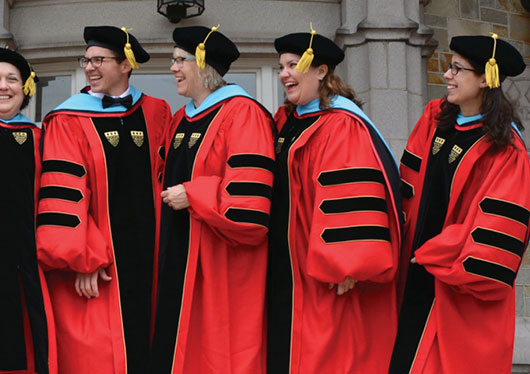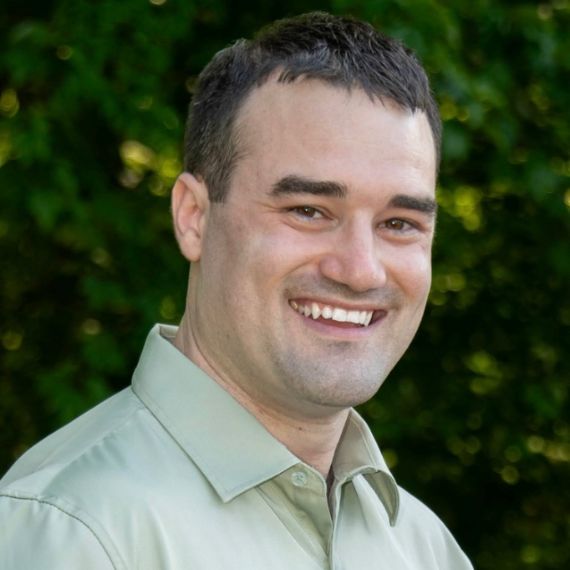Special Education Teacher/Board Certified Behavior Analyst®
In both professions, it’s a potent combination that immediately sets job applicants apart and expands career options. Now, imagine this title on your c.v. or resume.
The dual-degree MS in ABA/MEd in Teaching Special Education at Regis College provides this unique credential through a three-year program that is ideal for anyone who is interested in pursuing a master’s in special education while simultaneously becoming prepared to take the Behavior Analyst Board Certification exam.
This dual-degree would qualify you for jobs in each separate profession plus provide some additional options. We invite you to download the Dual ABA/MEd flyer to hear what a student has to say about their experience and more!
-
What careers will the dual-degree MS in ABA/MEd program prepare me for?
Clinical Director
Average Salary: $80,000
The BCBA® Clinical Director is responsible for managing all aspects of clinical operations relating to the treatment of clients. A clinical director may also oversee administrative operations, develop policies and procedures, and provide supervision for clinical supervisors.
University/College Professor
A BCBA University/College Professor typically teaches courses on various topics related to Applied Behavior Analysis. A University/College Professor may also provide clinical services, hold an administrative position, or conduct research within the field of ABA.
Clinical Supervisor
The BCBA Clinical Supervisor oversees training and supervision of BCBA’s and/or trainees delivering services to clients. A Clinical Supervisor may conduct assessments, review treatment plans and goals, and provide ongoing feedback of treatment program implementation.
ABA Training Coordinator
An ABA Training Coordinator often consults and teaches about the principles of Applied Behavior Analysis. They may provide training opportunities within a specific organization, school, or clinic, or for community educational purposes.
Special Education Teacher
Special education teachers work with students with learning, mental, emotional, and physical disabilities. Most special education teachers work in pre-school through high school public schools classrooms.
Behavior Support Specialist/Analyst
Autism Support Specialist
Autism Consultant TeacherSalaries and other data for these positions are not broken out separately by the Bureau of Labor Statistics. They are counted among special education teachers.
How Will You Rise at Regis?
The program offered both breadth and depth in course offerings that exposed me to various facets of the teaching profession. I also enjoyed the diverse group of colleagues I met through my program [which] greatly enhanced my overall appreciation for the field of education and prepared me for real world experience. I appreciated the warm, personal relationships a school such as Regis provides.”Lynn Song, Regis MEd alumnae
The dual degree three-year program has a discounted tuition rate of $12,000. That’s in addition to discounts available to the spouses and partners of employees through the partnership program Regis College has with many employers. Our financial aid counselors work with prospective master's students to find every available benefit and support opportunity.
* Does not include fees. Based on the academic year 2025-2026. Cost per credit and total cost subject to inflation.
All of our faculty are PhD level BCBA® with strong applied and research backgrounds in ABA. All have published papers in respected peer journals. In 2020, the pass rate for the BCBA exam was 92%.
The program directors provide assistance with practicum placements.
Share Your Dual Degree Experience With the World
Students and graduates have the option to participate in an eight to 12-day service trip to Iceland that occurs every other year. In Iceland, you will provide culturally competent behavior analytic care to children diagnosed with an autism spectrum disorder and/or a related disability. You will work together with fellow students, teachers, and alumni to teach young children socially significant behaviors and reduce unwanted problem behavior.
Three Clicks You Don’t Want to Miss
Ready to learn more about the dual Med/ABA degree program? Start by visiting the pages for each degree:
You can find the application for the dual-degree program at:



